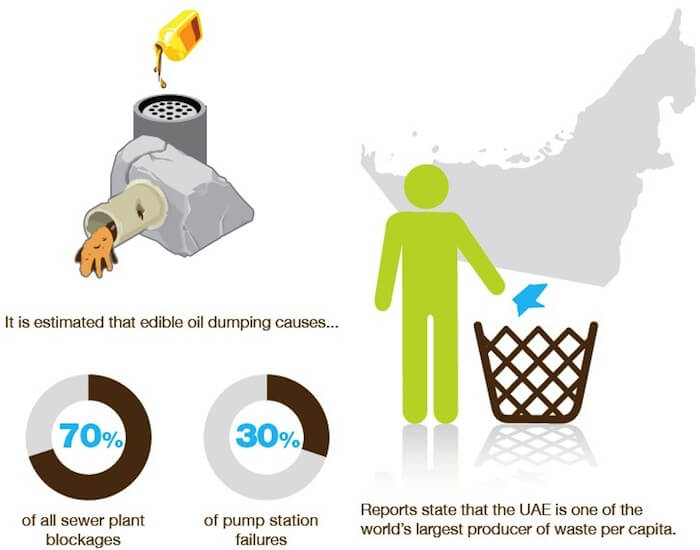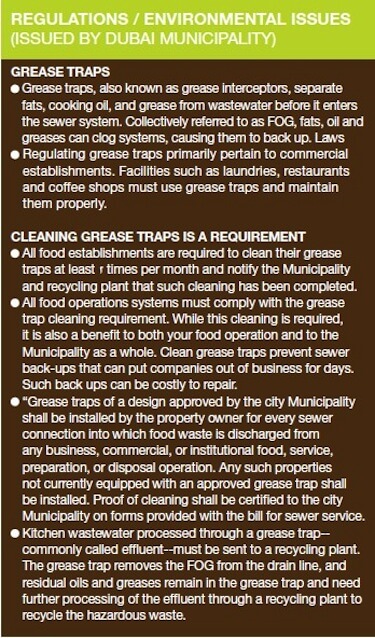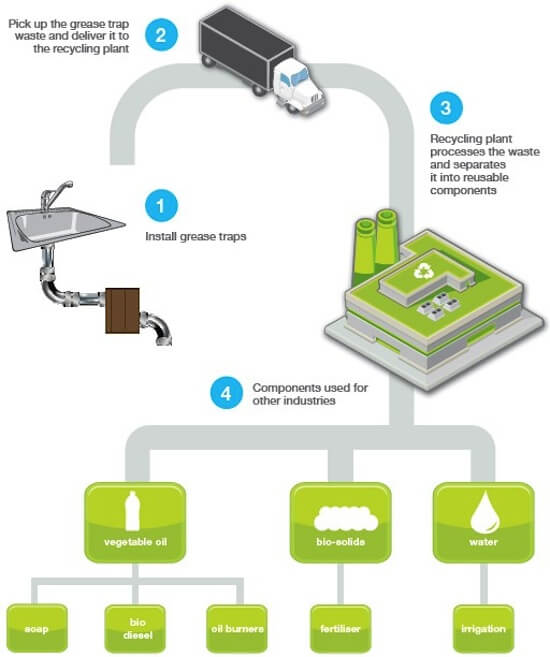For family businesses one of the most important factors for survival is the embededness in their community and environment. The community’s well-being and the environment’s sustainability, therefore, constitute priorities even after business families internationalise and diversify widely. In the Emirate of Dubai, in Deira to be exact, there thrives a family business that has always taken this responsibility seriously: Throughout three generations the Alserkal family members have brought innovation to their community and have pioneered in new areas of business.
True to this tradition, it is no surprise to find that the Alserkal Group has been busy with ‘Going Green’ for a considerable amount of time and started even before the issue achieved priority in the regional business community. For more than 12 years now, the Alserkal group has discussed and collaborated with the Dubai Municipality on how to address one of the most significant threats to the well-being and cleanliness of Dubai and its inhabitants: the disposal of edible oil waste.
The urgency of the matter became apparent to the family, when it observed the growth of the city and understood how large and significant tourism and hospitality would become for their Emirate. While others focused on the glamorous front-end of this sector, the Alserkal Group has busied itself with ‘how to clean up after it’. Hence the family established the edible oil waste recycling plant, Alserkal Envirol, using the highest level of technology, and carrying it to success with the usual family flair.
The Waste Problem
The percentage of oil and grease in wastewater is a globally recognised, pressing problem. The regulation of the responsible disposal of edible oil waste has been prioritised by municipalities all over the world. Communities try to avoid the negative impact on health, environment, and the economy that negligent waste dumping can lead to. An estimated 70% of all sewer plant blockages and 30% of pump station failures can be attributed to people either dumping edible oil waste into drains or mixing it with sewage water. Reports state that the UAE is one of the world’s largest producer of waste per capita.
With UAE’s tourism and hospitality sector having grown exponentially over the last few decades, the number of food service owners has risen dramatically to match the demand. With this came the problem of accumulated edible oil waste. In spite of the early installation of grease traps that capture the fats and oils going down the sinks, the problem of where to dispose of the trap contents remains. Many dispose of grease waste by simply dumping it in the desert or by washing it down the drain. Few know that the consequences can be disastrous for public infrastructure, the environment, and health. Blocked drains and pipes as well as the malfunction of pumps can cause stand-stills for businesses and the community at large. Fixing these problems can lead to considerable costs for individuals and municipalities.
Alserkal Envirol The Alserkal Group started searching for solutions to the problem of edible oil waste over a decade ago. Always in close collaboration with Dubai’s municipality, the family business set out to find the best grease trap waste recycling technology available. After many years of searching, the Alserkal Group decided to use systems from northern Europe and to invest into R&D in order to develop its own customised technology. The years of preparation and research finally led to a joint venture with the Dubai municipality and the birth of ‘Envirol’, a facility dedicated to the recyclingof grease trap waste. The technology used in thefactory was developed by and belongs to the Alserkal Group: it enables the separation of a maximal percentage of FOG (Fat, Oil, and Grease) from the grease trap waste and the recycling into useable components. Alserkal Envirol is subject to a BOT between the Alserkal group and the municipality, and while the plant is currently under Alserkal management, it will transfer into the municipality’s ownership within the next 15 years.
To the Alserkal family, establishing Alserkal Envirol was but the first step of many that it intends to take into the direction of their holding-wide green gy”>strategyspan> implementation. As a result of these efforts, the face of the family business has transformed dramatically over the past ten years; while remaining true to the family values and the way business is conducted, the group’s vision and mission as well as its marketing approach is aimed at shaping a green future.
How it Works
The g”>recycling plant is only one part of a green value chain that Alserkal Envirol proposes. The steps that lead to the safe disposal of edible oil waste involves various actors but is really rather simple in the end:
1. All food service owners are required to install grease traps to process their kitchen wastewater by the municipality. These traps capture FOG from the drain line and have to be emptied regularly.
2. Food service owners hire contractors that pick up the grease trap waste on a regular basis and deliver it to the recycling plant.
3. The recycling plant processes the waste and separates it into reusable components.
4. The resulting components are vegetable oil, which is used for the production of soap, bio diesel and oil burners; bio-solids, which is used as a fertiliser; and water used for irrigation purposes.
Alserkal Envirol provides services throughout the whole cycle from the installation of the grease traps, the safe delivery of the waste to the plant as well as the distribution of the components that are separated from the waste. Through its collaboration with the municipality, Alserkal Envirol assisted in the formulation of rules and regulations that would ensure that these steps are carried out properly.
Challenges and Reinforcing Measures
If recycling is such a good thing then how come there are still so many people not doing it? While the reasoning in favour of recycling is simple and straightforward, it is still a considerable challenge to make everyone adhere to the regulations. This may be due to the fact that grease trap waste recycling is perceived to be linked to additional effort and cost. Following are the three major challenges that Alserkal Envirol faces:
A) Costs:
g”>Recycling plants, such as Alserkal Envirol, have to charge clients per gallon of waste delivered due to the considerable fix costs attached to running the facility. This constitutes one of the reasons why some food service owners try and find cheaper ways of disposing of their waste and resort to illegal dumping, to the great detriment of the environment. Ironically, often the damages that blocked pipes and pumps can cause end up costing business owners much more than it would to adhere to recycling regulaions. To encourage recycling behaviour governments might want to consider offering the subsidisation of recycling for small food business owners, which would simultaneously increase the demand for state-of-the-art waste recycling plants.
B) Contractors:
The challenge does not always lie with the food service owner; depending on the contractor that is hired to dispose of the grease trap waste things can go wrong. Some contractors are known to dump the waste in the desert or into the drains causing the municipality soaring high costs in blockages and contamination. In collaboration with the municipality, Alserkal Envirol has developed some enforcing measures in order to prevent illegal dumping: GPS tracking devices are to be installed in the trucks that are used by licensed contractors to pick up the grease trap waste. This will enable control over their whereabouts during delivery time. Additionally, valves will be installed to assure that the tanks containing the grease can only be opened once the trucks arrive at the recycling plant and not before.
C) Lack of Awareness:
One of the greatest obstacles in disposing of edible oil waste is the lack of awareness of consumers and business owners. Many think that by emptying the grease traps into the garbage bag they have taken care of the problem and often do no understand the extent of damage this behaviour can cause. Raising awareness can be one of the most difficult parts of the recycling process. Alserkal Envirol consciously includes hygiene trainings and eco-practice trainings as a part of their services and the company bestows many hours to these activities. However, behaviours are hard to modify and consciousness is often difficult to instill, which is why the regulations by the municipality play a crucial role in managing grease trap waste disposal.
What Happens Next
Alserkal Envirol, today, counts names such as McDonald’s and Meydan Hotel amongst its clientele to mention but a few. What does the future hold in store? The Alserkal group plans on replicating the Envirol model in various other countries in the region. It will retain its model of collaboration with municipalities in order to make sure that the right rules and regulations are put in place to ensure the integrity of the recycling value chain. In countries where such regulations are already in place, Alserkal Envirol plans on competing in the private sector with other recycling plants, counting on the uniqueness of its technology and continuous development of its methods for a competitive advantage.
The success of the Alserkal family in establishing Envirol reinforces the belief that family businesses are optimally positioned both in the community and the private sector to set trends in sustainability and green practices. The green vision of the Alserkal group’s future outlines itself clearly and succinctly as the family moves on and continues to collaborate with private businesses, councils, and NPOs with the ultimate goal of creating a reputation for environmental excellence.
Tharawat Magazine, Issue 13, 2012


















